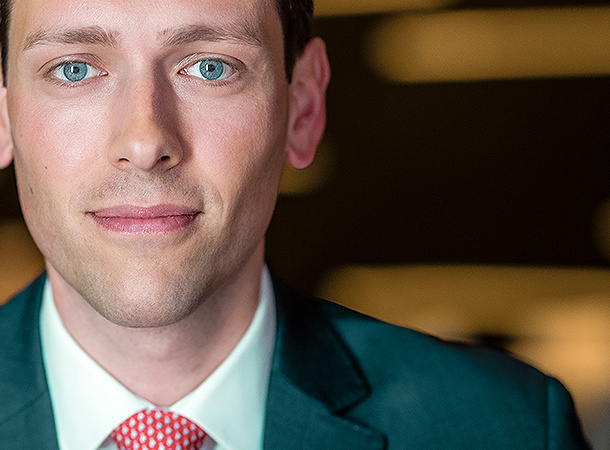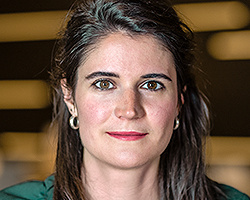From lobbyist to chess player
“Three years ago, my job was to influence policy officers at DNB and other institutions. Now I'm a policy officer. After completing my degree in political science, I went to work for a London-based financial lobbying firm. My task following the Brexit referendum was to exert influence to ensure as much access to the European markets as possible for the British banking sector. I found the game of exerting influence at the European level to be especially appealing. As a non-financial, I had to amass financial expertise on my own by taking courses and feeling my way through the world of finance.
After working as an external influencer for a couple of years with indirect results, I decided I wanted to start influencing things from the inside with more immediate results. That's when I saw the vacancy for a policy officer with DNB. The timing was perfect! Thanks to my experience as a financial lobbyist, I had a good understanding of what makes banks tick and how they might respond to DNB policy decisions. It's a lot like playing chess. You always have to think a few moves ahead.
Preventing cliff effects
The Supervisory Board at the European Central Bank supervises European banks. As a policy officer, I work with my colleagues to prepare our Director of Supervision for the meetings in Frankfurt. Moreover, for the past years I've been focussing on the potential risks of Brexit for Dutch banks, insurers and pension funds. Clearly, we wish to prevent the cliff effects following from a no-deal Brexit as much as we can.
We held a survey among financial institutions, asking them how they are preparing for Brexit and if there are any specific risks that we have not yet taken into account. We used the survey results to inventory a number of key points for consideration. We communicated these points in newsletters, to umbrella organisations and to the Ministry of Finance. We held another survey a few months later, and found that financial institutions were much better prepared. Partly because of these preparations no major problems arose around the end of the Brexit transition period.
In reality De Nederlandsche Bank is less of a Dutch institution than I had thought.
Dynamic and international
When I first applied for a job here, I initially thought that the building was full of financial scholars who spent weeks brooding over a single issue. In reality, deadlines are often short and you have to switch from one task to the next quickly. The lines of communication are also short: I'm in regular contact with our division directors and board members. At a commercial bank, contact with the CFO or CEO would be minimal. There are other stubborn myths about DNB. Some people think that we print money here all day.
One thing's for sure: everyone at DNB has a critical attitude, thinks for themselves and asks the right questions. You don't see people engaging in copy/paste behaviour here as is the norm in some other organisations. Moreover, there is plenty of scope for career advancement. In my case, a logical next step would be to the position of senior policy officer with greater autonomous responsibility, but someone like me could also switch to another division or specialise in a particular subject. I would not mind being seconded to the ECB in Frankfurt or the European Commission in Brussels for a while. More than anything, I have been pleasantly surprised by the international scope of our work. We really are right in the middle of a European playing field where each country also wants to defend its own national interests.”


